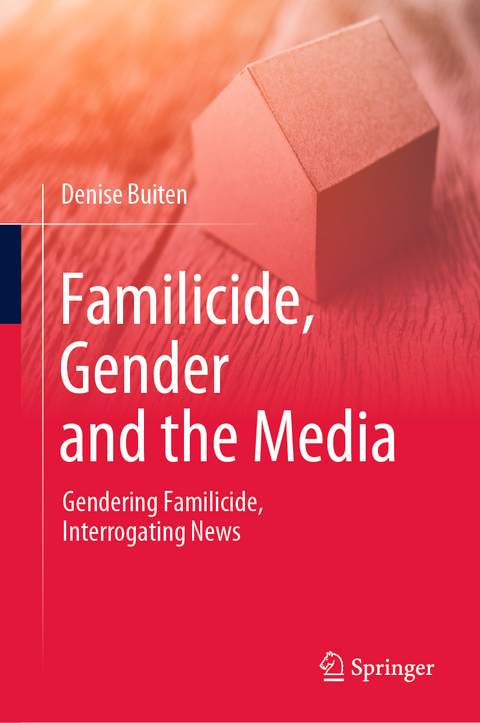
Familicide, Gender and the Media
Gendering Familicide, Interrogating News
Seiten
2022
|
1st ed. 2022
Springer Verlag, Singapore
978-981-19-5625-6 (ISBN)
Springer Verlag, Singapore
978-981-19-5625-6 (ISBN)
This book examines the complex issue of familicide-suicide – the murder of a partner and children followed by suicide. The purpose of the book is two-fold: to advance a feminist sociological analysis of familicide as a form of gender-based violence, and to examine how it is reported on in news.
The first section contextualises interpretations of familicide against the dual ascendancy of – and contestation around - feminist and mental illness discourses in public policy and debate. Advancing a feminist sociological analysis of familicide-suicide, it shows the value of ‘continuum thinking’ for understanding complex and varied forms of gender-based violence.
Section Two examines Australian news reporting on familicide-suicide, showing the ways cultural assumptions about domestic and family violence and mental illness shape news reporting. It analyses how discourses of gender, disability, age, and the ‘family’ serve to rationalise certain news frames and reflects on the thorny ethical issues inherent in reporting on familicide.
Arguing for a nuanced approach to gender-based violence and how it is reported, this book will be of interest for scholars of gender and violence, as well as media and journalism.
The first section contextualises interpretations of familicide against the dual ascendancy of – and contestation around - feminist and mental illness discourses in public policy and debate. Advancing a feminist sociological analysis of familicide-suicide, it shows the value of ‘continuum thinking’ for understanding complex and varied forms of gender-based violence.
Section Two examines Australian news reporting on familicide-suicide, showing the ways cultural assumptions about domestic and family violence and mental illness shape news reporting. It analyses how discourses of gender, disability, age, and the ‘family’ serve to rationalise certain news frames and reflects on the thorny ethical issues inherent in reporting on familicide.
Arguing for a nuanced approach to gender-based violence and how it is reported, this book will be of interest for scholars of gender and violence, as well as media and journalism.
Denise Buiten is a Senior Lecturer in Sociology and Social Justice at The University of Notre Dame Australia, and a Senior Research Associate of the University of Johannesburg. Her research focuses on understanding gender-based violence and tracing the evolving discourses surrounding gendered violence in media, policy, and public debates.
1 Domestic and Family Violence: The emergence of a public issue.- 2 Fatal family violence cases in Australia, 2014-2019.- 3 The Gender Question: Contested framings of domestic violence and filicide.- 4 The Mental Health Frame: Mental illness as sense-making mechanism.- 5 Intersections: Disability, class, race and age.- 6 Towards a feminist understanding at the intersection of mental health and violence.
| Erscheinungsdatum | 23.11.2022 |
|---|---|
| Zusatzinfo | 1 Illustrations, black and white; XIII, 313 p. 1 illus. |
| Verlagsort | Singapore |
| Sprache | englisch |
| Maße | 155 x 235 mm |
| Themenwelt | Recht / Steuern ► Strafrecht ► Kriminologie |
| Sozialwissenschaften ► Soziologie ► Gender Studies | |
| ISBN-10 | 981-19-5625-1 / 9811956251 |
| ISBN-13 | 978-981-19-5625-6 / 9789811956256 |
| Zustand | Neuware |
| Haben Sie eine Frage zum Produkt? |
Mehr entdecken
aus dem Bereich
aus dem Bereich
wie wir unsere Mimik und verborgene Körpersignale entschlüsseln
Buch | Hardcover (2022)
Droemer (Verlag)
CHF 27,95


